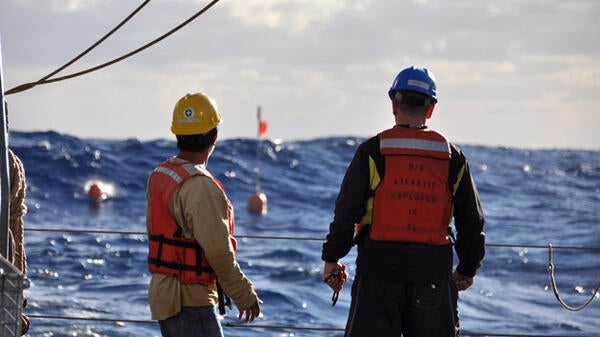Within the contours of oceanographic data are the stories of great ocean currents, tiny plankton, and life-sustaining nutrients at the surface of the sea. University students learn to study ocean properties through plots and graphs of these data, but rarely do they get hands-on experience with the instruments that generated them. A new BIOS summer course aims to change that by introducing students to the methods and technologies that have become the bread and butter of modern oceanography.
Underwater Robotics Challenge This Weekend!
March 20, 2015
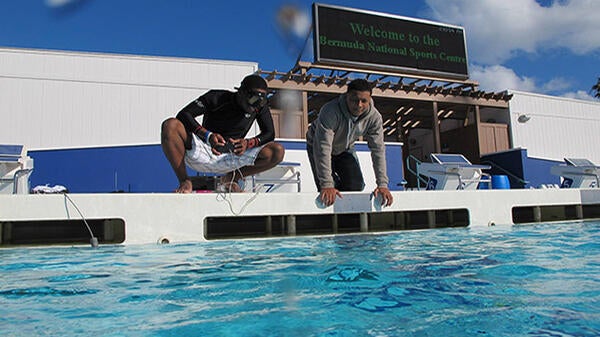
This Saturday, come cheer on the students competing in the 2015 ROV Angelfish Challenge! Mid-Atlantic Robotics in Education at BIOS. Each team will be piloting their own ROV through a series of underwater challenges at the National Sports Centre. The event opens to the public at 9am – hope to see you there!
Oceanographer Recognized for Innovative Research
March 24, 2015
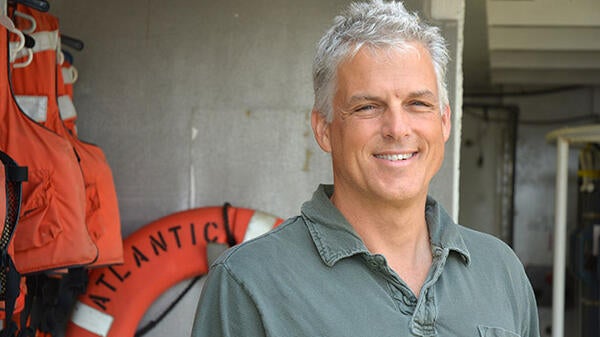
In the clear waters off the coast of Bermuda, Dr. Craig Carlson has spent decades investigating the invisible forces shaping the global carbon cycle: millions of bacteria in every drop of seawater, consuming carbon compounds dissolved into the ocean like sugar into tea. Dr. Carlson’s research linking how microbes interact with carbon in the ocean is now considered vital to understanding the global carbon cycle, and he is being honored with a major award from the leading professional organization for aquatic scientists.
REU Student Presents at Aquatic Sciences Meeting
March 26, 2015
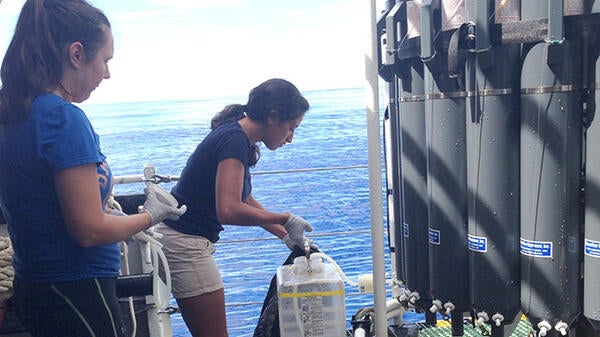
When Esra Mescioglu learned she was accepted to the Fall 2013 Research Experiences for Undergraduates (REU) program at BIOS, she didn’t know what to expect. Frankly, she was a little nervous to leave behind her friends and routine at the University of Massachusetts in Boston. Now, more than a year after her internship in Bermuda, she is thankful her nerves didn’t deter her and is flying from one scientific adventure to the next. Last week Mescioglu is presenting the results of her research project at the Aquatic Sciences meeting of the American Society for Limnology and Oceanography (ASLO) in Granada, Spain, and is quick to share how valuable her experience in the BIOS REU program was.
Monster Hurricanes Reached U.S. During Prehistoric Periods of Ocean Warming
March 27, 2015
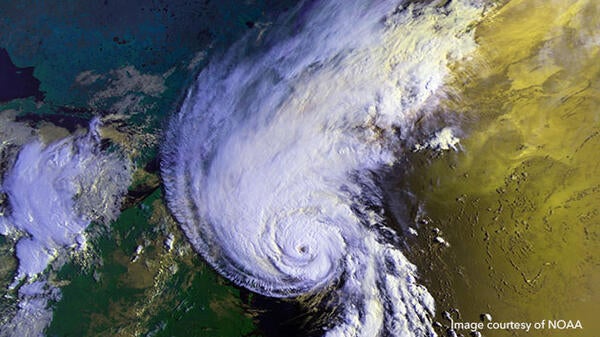
Research on coastal sediments, funded in part by BIOS’s Risk Prediction Initiative, shows that prehistoric hurricanes along the northern East Coast of the United States were likely more frequent and intense than those that have hit within recorded history. The hurricanes that battered New England in the first millennium were produced in part by warmer sea surface temperatures in the Atlantic Ocean. By looking to the past, these data can help scientists better predict the frequency and intensity of future hurricanes as the ocean continues to warm due to climate change.
Students Test Their Underwater Robots
March 28, 2015
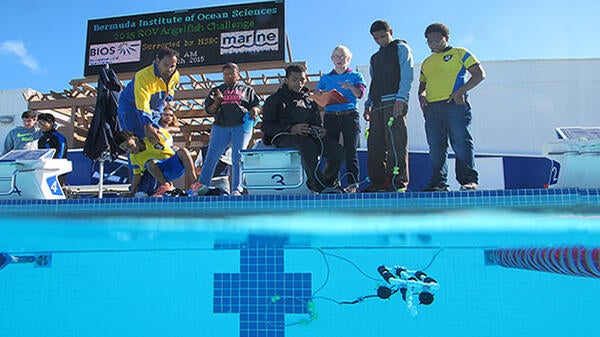
Students put their technical skills to the test yesterday as part of an island-wide competition to design the best underwater robot.
Summer Courses in Coral Reef Classrooms (yes, there will be SCUBA diving)
March 29, 2015
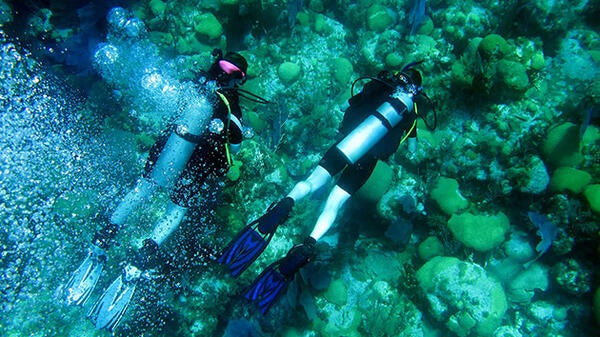
This summer BIOS is offering two unique courses focused on coral reef ecology, and both provide exceptional opportunities for university students to gain hands-on experience with modern research methods. Bermuda’s coral reefs provide spectacular underwater classrooms for SCUBA-certified students to experiment and study as they become the next generation of coral reef scientists and stewards.
Scientist at Work: A Conversation with BIOS Biologist Leocadio “Leo” Blanco-Bercial
March 30, 2015
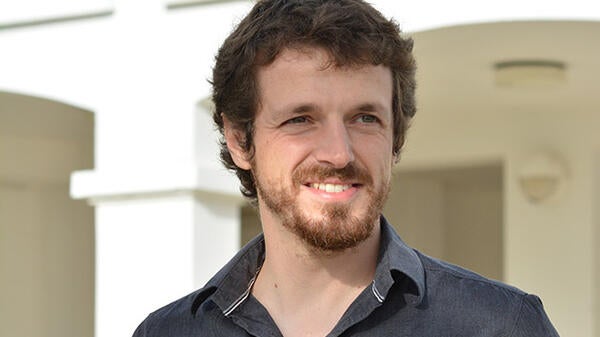
Leo Blanco-Bercial grew up fishing for mackerel and tuna off the coast of his native Spain, but for his career has gravitated to studies of the tiniest of marine organisms: plankton. Blanco-Bercial, 36, began work at BIOS in January with the intention of continuing his plankton studies, specifically their genetics. He also plans to continue educating his Europe-based family, he said. “During visits home, I like explaining how plankton nourish the fish that we love catching and eating.”
BATS Funding Renewed
June 28, 2018
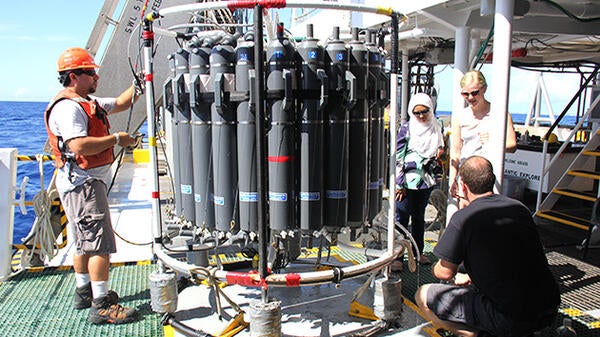
Funds granted in May by the National Science Foundation will allow BIOS scientists to continue their research through 2023 at the Bermuda Atlantic Time-series Study (BATS) site, a project established in 1988 by BIOS and collaborators to examine the “time-varying” components of the ocean carbon cycle, ocean physics, and biology.
A Marriage of Science and Art
June 28, 2018
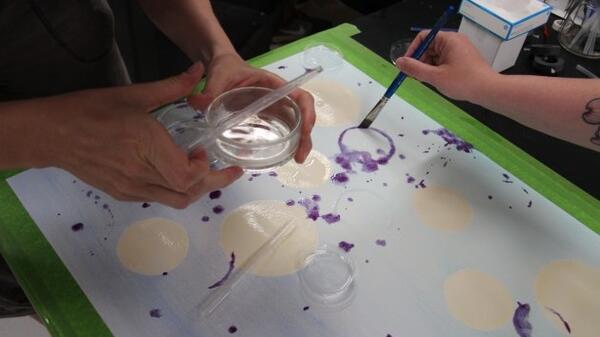
As scientists work to answer progressively complex questions about the earth and its changing climate, they are becoming more aware of the importance of communicating their findings to the public. To improve the likelihood that their messages are heard, understood, and made accessible, they are increasingly turning to art.
